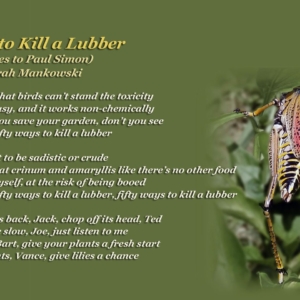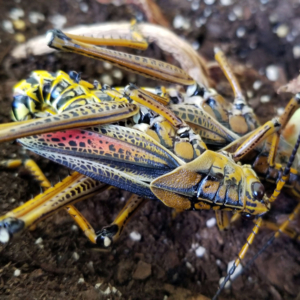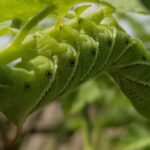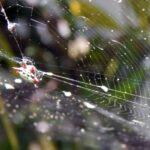My main complaint against the Eastern lubber grasshopper, aka Florida lubber, is that they don’t play fair. Whereas they should be part of the food chain, the lubber has toxins that keep it from becoming a snack by most critters. From what I can learn, the only natural predator is a little bird called a loggerhead shrike. This bird impels the lubber on a thorn or barbed wire until the sun bakes away the toxins. As fascinating as this sounds, I’ve never seen it for myself. Sorry, no video, although wouldn’t that be cool? I have no reason to believe a loggerhead shrike has ever visited my yard. But, oh boy, do I ever get the lubbers.
I can’t even make my usual complaint about nonnative species dumped on Florida. The Eastern lubber Grasshopper is native. But it doesn’t play fair! If the grasshopper can’t be used as fish bait or chicken food, or for a quick snack for some visiting bird, something just doesn’t seem right. It’s enough to shake my belief that things in a diverse ecosystem balance out. Even my cats want no part of it. When they root out a lubber in our pool enclosure, they waste no time with cat play. They give it a quick toss into the pool.
Yeah. Thanks a lot.
Within the first year of living at this location, the lubbers completely destroyed all the amaryllis given to me by my great aunt. They ate up the daylilies. Even with all the vigor of the crinum lilies, they can demolish the flowers overnight. While they are most destructive with lilies, they will feed on whatever takes their fancy.
If there is one bright spot, or do I even dare say this without crossing my fingers, I have yet to find evidence that they eat gingers.
Anyway, here is my parody, with apologies to Paul Simon: 50 Ways to Kill a Lubber.






